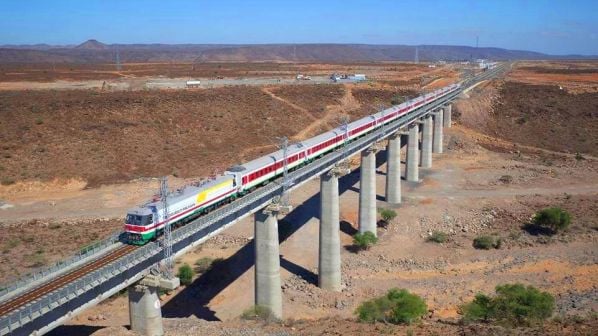ETHIOPIA has released its first National Transport Policy, which has been developed to address the ever-increasing demand for transport infrastructure and services across the country. The strategy aims to fully utilise the capacity in the transport sector.
“The transport sector underpins our citizens’ rights to mobility and plays a crucial role in ensuring the socio-economic wellbeing of our people,” says minister of transport, Ms Dagmawit Moges. “It also supports the growth of key pillars of our economy, such as agriculture, industry, tourism, mining, services and other drivers of growth.”
Moges says the policy was developed with input from a diverse group of stakeholders from the regions, academia, government and non-government partners as well as the general public. She says the key strategies and directions incorporated in the policy also consider local and global trends in the sector as well as past performance assessments.
The strategy identifies rail as an efficient, effective and pollution free mode of transport, when operating on renewable energy, which is capable of quickly carrying large amounts of freight or passengers at low costs.
The strategy points out that the country has been implementing several rail projects in recent years, including the Addis Djibouti rail line and Addis Ababa light rail projects, which have now been completed.
“It will certainly support our economy to finalise and operationalise rail projects [currently] in the pipeline and maintain existing ones,” the strategy says.
However, the strategy also recognises the high cost of constructing and maintaining a new line, which it says indicates that the sector requires huge finance for construction and operation purpose.
“The existing rail infrastructure is constructed with long-term loans, making it difficult to plan and implement new railway initiatives,” the policy says. “Taking the economic development and financial capacity of our country into account, the policy proposes a detailed financial and economic feasibility study of rail transport.”
The overall policy covers both regional and international transport requirements and outlines clear directions and strategies for the smooth integration of the two.
“Changes and improvements to the transport sector have the potential to significantly improve the social and economic well-being of our people,” Moges says. “The policy will deliver tangible benefits to citizens and businesses by expanding transport infrastructure in all sub-sectors - road, rail, aviation, water transport - and fostering greater integration between passenger and freight transport for improved economic feasibility and corridor development efficiency.”

